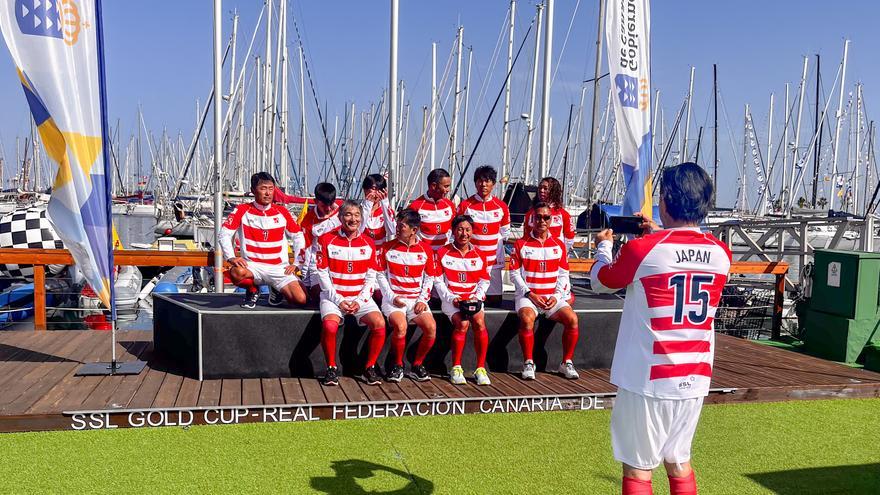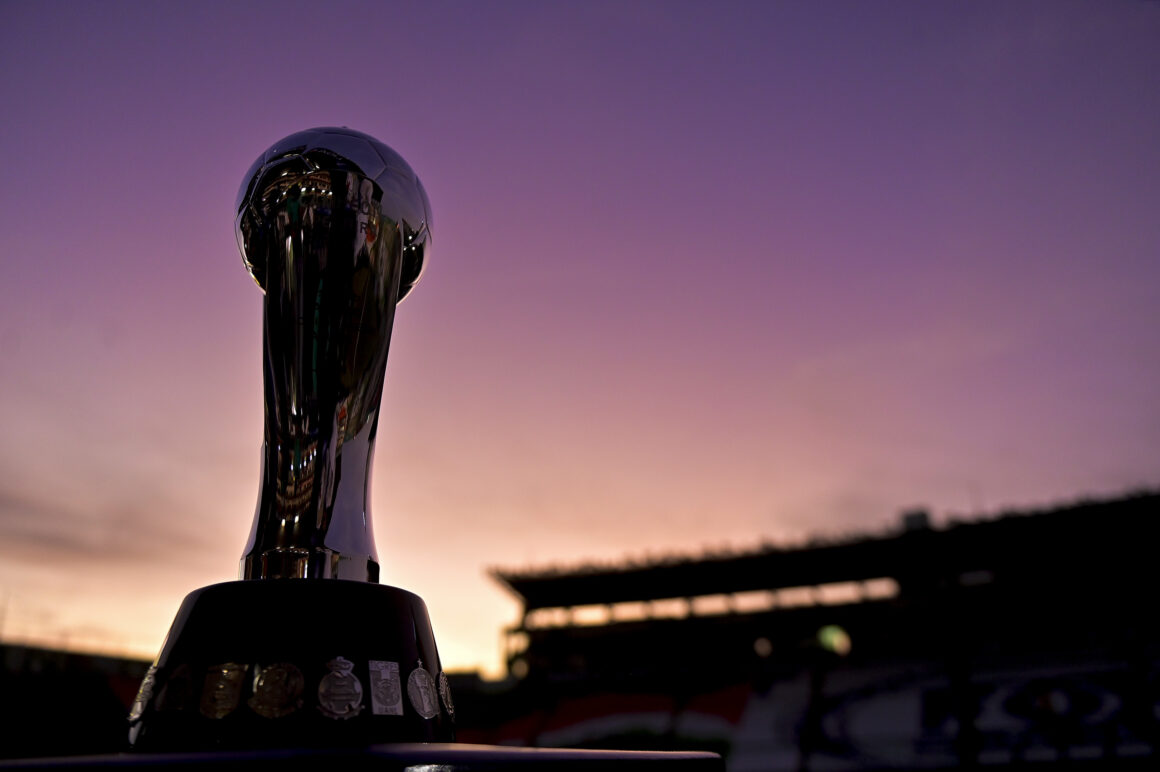with Ten teams survive the first round and six qualify directly to the second stage (16th, in the name of this competition), the Gran Canaria SSL Gold Cup, organized by the Stars Sailors League and the Royal Canary Sailing Federation, returns to the waters tomorrow, Thursday, in the bay of Las Palmas de Gran Canaria.
Related
Four identical boats, teams fighting in uniform and as one team for their country after listening to their national anthem, and a distinctive method of scoring that will leave you holding your breath until the last minute of the final round, are exciting elements of a competition that continues from anywhere in the world without losing an ounce of emotion thanks to Amazing broadcast on YouTube.
Newcomers Canada, Japan, Austria, Finland, Hungary and Croatia passed registration and weigh-ins on Wednesday (the crew as a whole cannot exceed 750 kilograms) before competing.
At least five of the new captains are Olympic sailors and in three cases have medals. In the crew there are also world champions in various categories and winners of continental events, as well as athletes with ocean experience.
Driving Austria Tomas Zajac, Rio Olympics bronze medalist, and tactician Lukas Maher, are currently in the middle of a Paris 2024 Olympic campaign in the 470 medley. The Austrian team is young, with the majority of sailors under 30 years old.
Special rules of the competition keep the excitement going until the final round; As established in the first phase, nothing can be taken for granted
Robert Hemming is the team leader Canada, The Japanese have Ichiro Hamazaki, a Sydney Olympian.
Before Hungary The captain is Zsombor Bereck, silver medalist Tokyo 2020. Berecz is the best active Hungarian sailor, having won 28 national championships in the ILCA and Finn classes.
Croatia It offers a versatile team, with experience in classes such as RC44, TP52, ClubSwan or Wally, as well as in Olympic sailing. The captain is Sime Vantella, Rio 2016 gold medalist, world champion and also three-time European winner in the Finn category. The patron of the Croatians is Toni Stipanovic, winner of the first Olympic medal in the history of sailing in this country. Igor Marinic, Sime’s partner in three Olympic campaigns, will also sail in Canary waters.
2022 Finnish World Champion Uskari Mohonen will be the Finnish Team Captain while Thomas Johansson – Sydney 2000 Olympic Champion in the 49er Class and an ocean sailor with two Volvo Ocean Race entries – is the Finnish SSL Team Captain.
The direct passing of the sixteenth of these six teams is driven by their position in the rankings prepared by the Association of Sailor Stars with the results of the regattas (world, continental, Olympic and national medals), so in theory they will be stronger teams than those. Who had to reserve a place for themselves in the qualifying series (which will be held in Switzerland in 2022) and in the thirty-second stage in which the tournament began on November 10 in the Canary Islands.
The importance of the classification in this competition – inspired by the ATP – will be clearly demonstrated in the quarter-finals, the last stage with the participation of 16 teams, before the semi-finals, with the direct entry of eight major sailing powers, among which Spain appears second in the SSL classification.
Great Britain – No. 1 in the rankings – and Spain join the table directly in the quarter-finals alongside Italy, New Zealand, Australia, Denmark, Netherlands and Germany.
However, weaker ships theoretically have the advantage of sailing longer in the four SSL47 designs competed in the first ‘FIFA World Cup’ of sailing. New visitors will jump into the water for the first time without having tried the gold-hulled speedboats. Failures mainly due to poor training of teams on this one design caused some disappointment during the first phase.
In the first stage of the “FIFA World Cup” led by the sail, we witnessed sudden setbacks in the classification and theoretical favorites dropped from the save places at the last minute. We also learned that single SSL47 designs are fast even in light winds.
This is the case with Chile, who finished third two days after topping their group (the top two teams in each group of four advance to the next round). The absence of two of the teams that should have entered directly (Israel and Bahrain) from the second round allows Chile and Antigua and Barbuda, the two best third teams in the first table, to qualify for the round as “lucky losers.” Hopefully losers, what can we say in Spanish.
Looking for equal chances among the 40 (now 30) teams competing in this final is one of the keys to this competition. Chilean national team captain, Pablo Lorca, explained this a few days ago: “This formula allows us to equalize the playing field and compete fairly.”
Groups
The competition will return starting tomorrow, Thursday, with the 16 teams divided into four groups, and each of them will sail one round per day for four days. They will take turns so everyone can use all 4 boats, using an inflatable boat transportation system that allows back-to-back regattas without moving single designs from the regatta field.
The groups were formed for this new stage as follows:
Group 1:
Austria, Chile, Malaysia and Estonia. Only Austria did not compete in the first stage.
Group 2:
Finland, Hungary, Tahiti and Bermuda. Finland and Hungary are the new additions.
Group 3:
Republic of South Africa, Portugal, Croatia, Antigua and Barbuda. Only Croatia did not compete in the round of 32.
Group 4:
Slovakia and Lithuania, the survivors of the first round, and Canada and Japan, who join the sixteenth round.
Tests will begin each day at approximately 10:30 local island time and can be followed live on YouTube at the link: https://www.youtube.com/@Starsailors/streams
The Gran Canaria SSL Gold Cup is organized by the Stars Sailors League (SSL) and the Royal Canary Islands Sailing Federation, as local co-organiser, in collaboration with the Latin Canary Sailing Federation.
The regatta is supported by the Cabildo of Gran Canaria, the Insular Institute of Sports of Gran Canaria, the Government of the Canary Islands through the Deputy Ministry of Sports, and the City Council of Las Palmas de Gran Canaria through the Municipal Institute of Sports. Sports and Tourism Departments and the City of Ciudad de Mar; In cooperation with Puertos de Las Palmas, Naviera Armas Trasmediterránea, the Ministry of Defence, the Canary Islands Naval Command and the RCNGC Yacht Clubs; RCNT, RCNA, CM Varadero, Gran Canaria, Grupo Aare and Coca-Cola.
Website for SSL STARSAILORS.COM



/cloudfront-us-east-1.images.arcpublishing.com/eluniverso/I5JYE3AEMOAJ7XHPV6JNT3WQZM.jpg)
:quality(85)/cloudfront-us-east-1.images.arcpublishing.com/infobae/IUGZW7JQB4YV5SNQRVASPC5LNU.jpg)
:quality(85)/cloudfront-us-east-1.images.arcpublishing.com/infobae/BPY5HJVZYJEXVML4Q4Z2AFWANU.jpg)